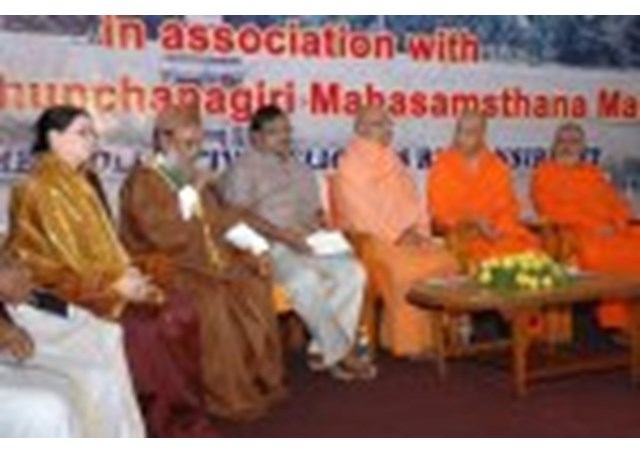
Nepal: Interfaith prayer ‘to close Ramadan in harmony’

“An interfaith prayer for peace between Israel and Palestine, peace in Iraq and peace between Ukraine and Russia; And also to push the government of Nepal to recognize that all faiths are equal, have equal rights and deserve the same protection from the authorities". This is the spirit that moved the leaders of major religious denominations in the country, to gather today in the great mosque in Kathmandu at the invitation of the local Muslim community to celebrate Eid-ul-Fitr, the feast that ends the Muslim holy month of Ramadan.
Mansur Ansani, a spokesman for the Islamic community, said: "We will pray together, each one to their God, for solidarity and unity of the nation and for world peace. Guests included Hindus, Christians, Muslims, Buddhists, Baha'i and Jains: here in Nepal we celebrate the festivities of all religions and we have been able to create a real solidarity between the faiths. Nations of the world should learn from us". Those present also included the new apostolic vicar of Nepal, Msgr. Paul Simick, his "first" inter-religious appointment in the country.
According to Fr. Bill Robinson, a missionary working in Nepal, the initiative "is very good, because it calls for dialogue and avoid all kinds of conflicts and suppression of any one group. We are invited to inter-religious prayer for the country, for peace in Israel and Palestine and also for many parts of the world. Other faith groups join our celebrations and we also join to theirs". Hindu leader, Damodar Sharma, says "we have no problem in being with others. What is important is always to promote peace and solidarity."
The 2007 interim constitution of Nepal protects religious freedom and, in practice, the government generally has respected religious freedom. The interim constitution has also officially declared the country a secular state, what was once referred to as a ‘Hindu Kingdom’. In the land locked country with a population of 28 million, Hindus constitute approximately 81.3 percent of the population; Buddhists, 9.0 percent; Muslims, the majority Sunni, 4.4 percent; practitioners of Kirant (an indigenous animist religion), 3.1 percent; and Christians, 1.6 percent.
(Source: AsiaNews)
| All the contents on this site are copyrighted ©. |


